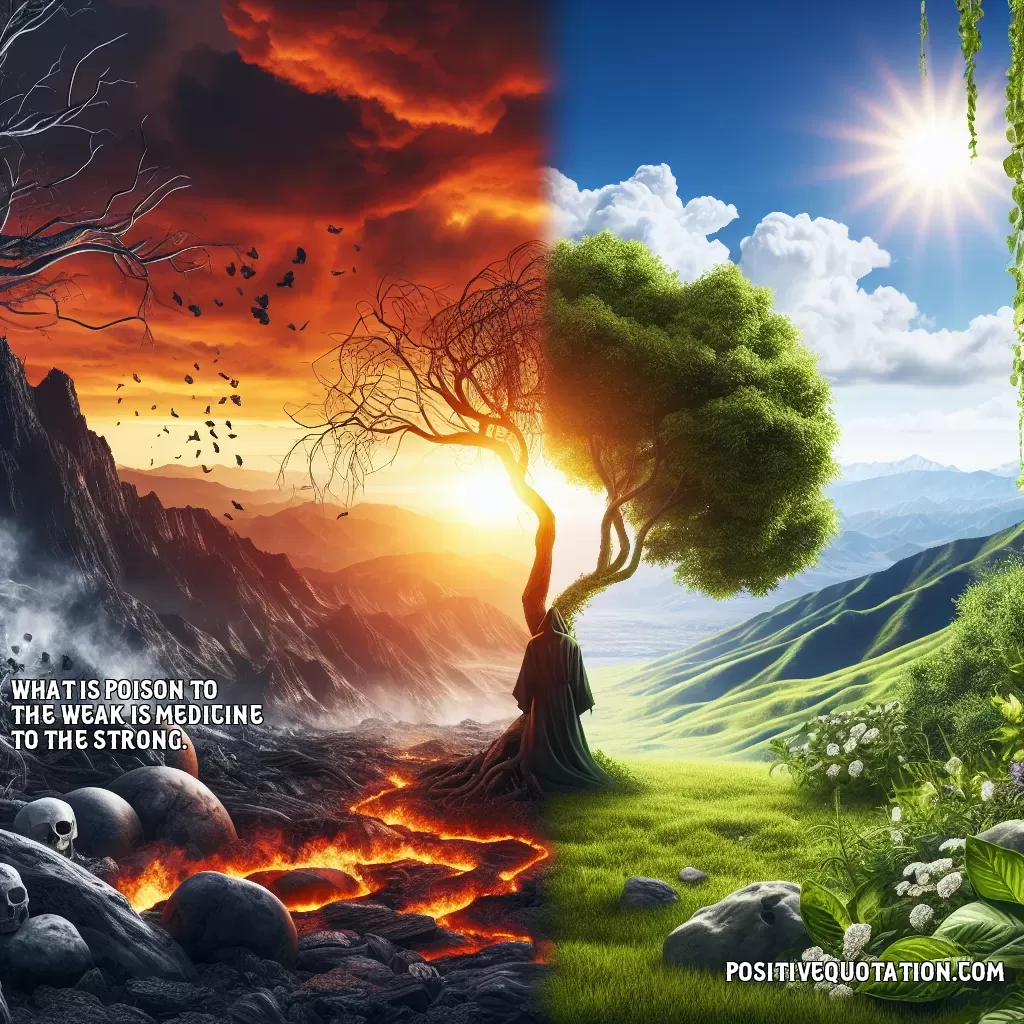
What is poison to the weak is medicine to the strong.
Author: Friedrich Nietzsche
👁️ 18 views
The quote "What is poison to the weak is medicine to the strong" suggests that different individuals or groups have varying capacities to handle challenges, adversities, or even literal substances. It reflects an understanding of resilience, adaptability, and strength. For the "weak," difficult situations or adversities might be harmful, overwhelming, or destructive. They may lack the resources, resilience, or experience needed to cope with these challenges, leading to negative impacts or even a breakdown. To them, these experiences act like poison, causing harm or hindrance. Conversely, the "strong" are those who have developed resilience, adaptability, and strength, which allows them to transform challenges into growth opportunities. Just as certain substances can be toxic in one context and beneficial in another, strong individuals can process adversity and extract valuable lessons or benefits from it. They perceive challenges as medicine that fortifies them, fosters improvement, and enhances their capabilities. The quote can apply not only to personal challenges but also to life experiences, criticisms, failures, and change. It encourages cultivating strength, resilience, and a growth mindset, suggesting that with these qualities, one can convert adversity from a harmful substance into a healing tonic. This perspective emphasizes the importance of developing inner strength, viewing challenges as opportunities for personal growth, and recognizing that the impact of any experience depends largely on one's attitude and approach.
Quote By: Friedrich Nietzsche
Friedrich Nietzsche (1844-1900) was a German philosopher, cultural critic, and poet known for his provocative ideas on morality, religion, and the nature of existence. He famously declared the "death of God" and introduced concepts such as the "Übermensch" and "eternal recurrence," challenging traditional values and pushing for a re-evaluation of societal beliefs. His influential works, including "Thus Spoke Zarathustra" and "Beyond Good and Evil," have left a lasting impact on philosophy, literature, and psychology.
Bio added on: 2025-02-15 02:56:26